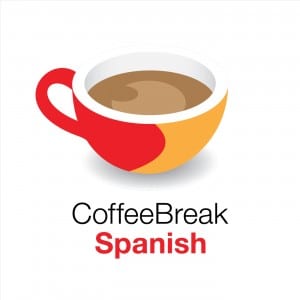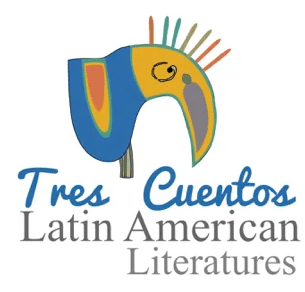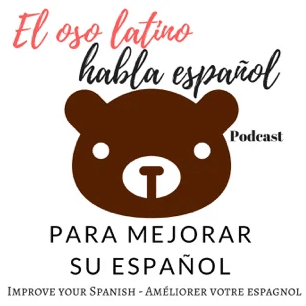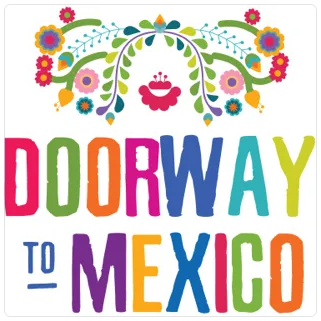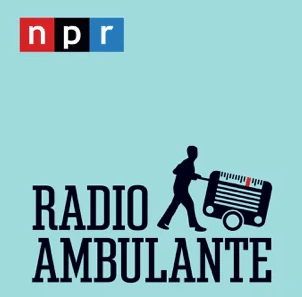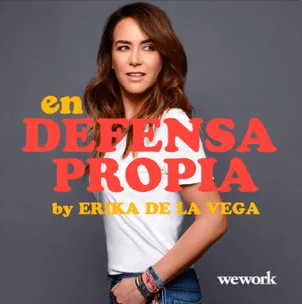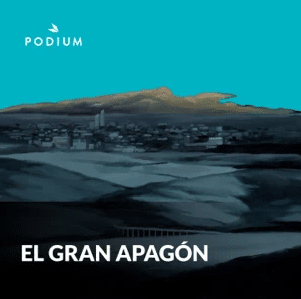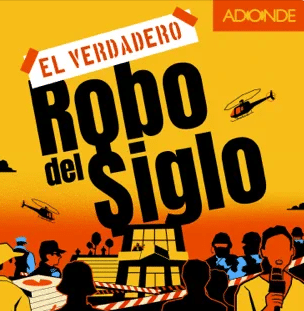
The Best Spanish Podcasts [2024 Recommendations]
So many Spanish podcasts, so little time!
But which ones will help you on your way to Spanish fluency?
With so many excellent podcasts, making the right choice can feel a bit overwhelming.
So, I’ve made a list of 40 superb Spanish podcasts and provided some in-depth descriptions so you can choose the one that suits your needs and taste.
Contents
- Spanish Podcasts for Beginner Learners
- Spanish Podcasts for Intermediate Learners
- Spanish Podcasts for Advanced Learners
- Native Spanish Podcasts
-
- 22. Fallo de Sistema
- 23. Las Raras
- 24. Radio Ambulante
- 25. En Defensa Propia
- 26. La Parroquia
- 27. El Gran Apagón
- 28. RFI Podcast Español Informativos
- 29. Cosas de Internet
- 30. Nómadas
- 31. El Verdadero Robo del Siglo
- 32. La Biblioteca de Alejandría
- 33. Obsesión por el Cielo
- 34. Universo Parallelo
- 35. Cienciaes
- 36. El Explicador
- 37. Carne Cruda
- 38. Alt.Latino
- 39. Café del Sur
- 40. Democracy Now! En Español
- How to Learn Spanish by Listening to Podcasts
- Why Listen to Spanish Podcasts?
- Can I Learn Spanish Through Podcasts?
- And One More Thing…
Download: This blog post is available as a convenient and portable PDF that you can take anywhere. Click here to get a copy. (Download)
Spanish Podcasts for Beginner Learners
1. Coffee Break Spanish
Apple Podcasts | Spotify | website
One of the biggest leaders of the Spanish podcast field is Coffee Break Spanish.
This award-winning language course has a large legion of followers and is aimed at learners of all levels. It features more than 200 fun episodes of 15-20 minutes each.
Your host for these conversational classes is Mark, an experienced language teacher with an exquisite Spanish accent.
He’ll have several native and non-native co-hosts (all of whom speak Spanish fluently) throughout the episodes!
The topics you’ll listen to are as varied as they can be, from ordering a coffee to Federico Garcia Lorca.
Pro-tip: If you want to make Spanish a daily habit, they have a book with 50 activity ideas for that.
2. StudySpanish.com

The first thing that catches your attention when you listen to the StudySpanish.com podcast is the lively music.
After the intro, a whole journey into the Spanish language starts.
The lessons are quite formal in structure and revolve around a specific Spanish grammar topic, with plenty of helpful explanations.
There’s also a treasure chest of supporting material on the website, including pronunciation, grammar and vocabulary lessons, mini-quizzes and verb drills.
Pro-tip: If you’re really looking for a free podcast series, you’ll have to look somewhere else, since only two episodes are offered for free.
3. Spanish Obsessed
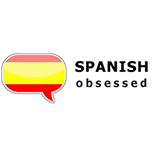
Apple Podcasts | Spotify | website
This Spanish podcast is hosted by Rob, an eager Spanish language learner, originally from the UK, and Liz, a native speaker, originally from Colombia.
Rob’s efforts to learn Spanish teamed up with Liz’s firsthand knowledge make a great combo for learners to hear.
The fact that Rob’s Spanish is still not quite perfect is encouraging and reassuring for anyone tuning in. Liz’s few interjections are also undoubtedly helpful for anyone making similar mistakes.
The duo’s natural, personable and clear conversations around various themes (such as their travels to far-flung countries or love of coffee) provide great tools for improving your Spanish and make listening enjoyable.
Pro-tip: If you access the podcast through their website, you’ll also have access to a blog and some grammar and vocabulary guides.
4. LightSpeed Spanish
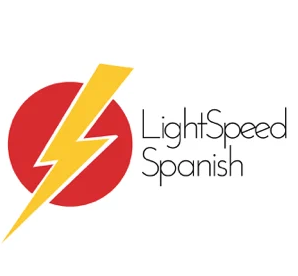
Apple Podcasts | Spotify | website
Don’t let the simple look of this podcast’s website fool you. LightSpeed Spanish is a great way to learn European Spanish from scratch.
In each episode, hosts Gordon Smith and Cynthia Durán discuss a specific topic.
The beginner series includes plenty of English explanations and Spanish translations, while later, more advanced series keep English to a minimum.
Starting with greetings in Spanish and the Spanish alphabet, the hosts will teach you about many diverse grammar, vocabulary and cultural topics, such as Spanish-language gender, question words, reflexive verbs, connecting words, Spanish commands, family values and the meaning of success.
Pro-tip: Practically every topic is available (for free) in video and downloadable audio format and includes written grammar explanations.
5. Audiria

This lively and engaging podcast series for Spanish learners was created by two Malaga-based brothers as a non-profit enterprise. All of the episodes are free!
Audiria is a rich source of Spanish listening material (and when I say rich, I really mean it). While the podcast isn’t regularly updated, there are more than 800 episodes in total!
The podcast is entirely in Spanish and covers a large variety of real-life situations that go from film reviews to trips to Spanish culture, all tagged by level.
Episodes are supplemented with exercises, grammar resources and language tips, among other goodies.
Pro-tip: Don’t miss the “grammar,” “culture” and “short scenes” sections.
6. Notes in Spanish

Apple Podcast | Spotify | website
Notes in Spanish is made by a husband and wife team based in Madrid.
Ben is from England and Marina is a madrileña (a woman from Madrid). Together they offer a trip to full Spanish immersion thanks to their use of real conversational phrases to talk about real-life happenings.
What’s more, each category is accompanied by worksheets (for a price). Additionally, each episode starts with a recap of the previous one.
This dynamic language duo must be doing something right, as they’ve built up a large following. There have been more than 40 million downloads worldwide of their Spanish audio!
Pro-tip: Subscribe to their newsletter to get your free “Kickstart Your Spanish” report.
7. SpanishPod101

Apple Podcast | App Store | Google Play | website
One of the really neat things about SpanishPod101 is that you can learn the language from native speakers from different parts of the Spanish-speaking world, including Peru, Costa Rica and Mexico. That’ll help you learn how Spanish is spoken in different regions.
The episodes are upbeat and enjoyable, with dialogues that are repeated several times. These are supplemented with transcripts, vocabulary lists, grammar notes and cultural insights.
SpanishPod101 covers five levels, going from beginner all the way to advanced. Sign up for free!
Pro-tip: Their YouTube channel has 24/7 livestreams for speaking and listening practice and everyday Spanish.
8. 15 Minute Spanish for Your Job
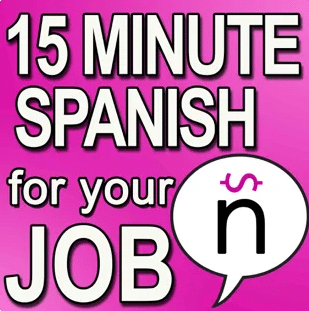
If you’re a beginner learner of Spanish, this podcast is perfect for you.
Each episode introduces a work-related topic through example conversations. The presenter goes over each sentence and gives the necessary explanations.
The goal is for learners to imagine themselves in the situations in the conversations so that when they’re confronted with something similar in real life, they’re ready for it.
You’ll hear conversations between a teacher and a student, a customer service representative and a client, among others.
There are also episodes on rock music, the Day of the Dead, coffee, Steve Jobs and much more.
Pro-tip: Check each episode on the website, where you’ll find free transcripts, YouTube videos, vocabulary lists and a whole lot more freebies.
Spanish Podcasts for Intermediate Learners
9. The Unlimited Spanish Podcast
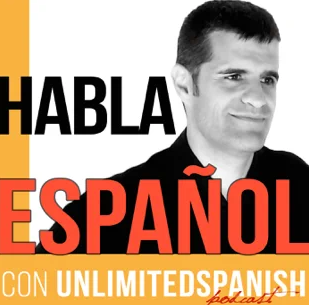
Apple Podcast | Spotify | website
If you’re a fan of the Teaching Proficiency through Reading and Storytelling (TPRS) method, you’re going to love Òscar and his way of teaching Spanish.
With more than 300 episodes, this podcast can be used by intermediate students who want to practice with a crystal-clear Spanish-from-Spain accent at a rather slow speed.
Topics go from short stories related to Òscar’s life to cultural and linguistic explanations.
There are also many episodes devoted to Spanish vocabulary (like money or compliments) and some grammar rules, all delivered in a way that’ll make you feel like you’re being told a fairy tale.
Pro-tip: Sign up to get Òscar’s “5 Pillars for Learning Spanish” mini-course and free samples of his courses.
10. Podcasts in Spanish
These podcasts are hosted purely by native speakers, so you’ll be picking up the most accurate pronunciations of words. The conversations also come across as very natural and seem to be among friends.
Unlike other podcast websites, there are no English speakers or translations throughout the conversations. The podcasts range in subject matter from discussions about vecinos (neighbors), to discovering different cultures when traveling, to the football season in Spain.
These podcasts are just 2-3 minutes, so perfect for tuning into if you find yourself needing to fill in a gap in your day.
Pro-tip: You can check the “Freebies” section to get three free sample worksheets.
11. Spanishland School
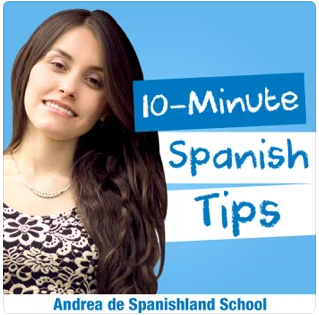
Apple Podcast | Spotify | website
Mainly conducted in Spanish, this Latin American Spanish podcast by Andrea Alger has more than 400 episodes, and it gets updated at least once a week.
Designed for intermediate learners, each episode of Spanishland School’s podcast revolves around a grammar or vocabulary topic that’s explained with tons of examples.
One of the promises the podcasts makes is that you’ll learn how to think and speak like a native speaker.
The content of the episodes is indeed valuable, but students will notice she speaks excessively slow for the topics and levels at hand.
Pro-tip: Check the blog on the website for more tips and tricks on learning Spanish.
12. Españolistos
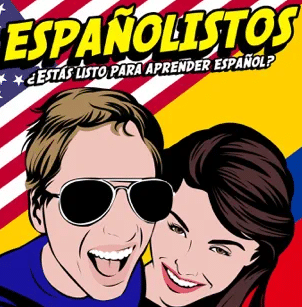
Apple Podcast | Spotify | website
Andrea (the founder of Spanishland School mentioned above) has another podcast that she created with her husband Nate, an American fluent in Spanish. This podcast is geared towards intermediate and advanced learners who want to practice Latin American Spanish through fun and interesting topics.
Although Nate speaks Spanish fluently, he makes mistakes from time to time, which Andrea corrects.
With 300+ episodes of around 30 minutes each, Españolistos is Spanish-only podcast that combines social and cultural commentary, travel and grammar in engaging conversations that’ll leave you wanting more.
They sometimes invite other Spanish-speaking guests (normally native) and interview them.
Pro-tip: You can get the transcripts of the episodes by making a $10 donation.
13. Hoy Hablamos

Apple Podcast | Spotify | website
With more than 1,700 episodes, Hoy Hablamos must have the most hard-working team of podcasters I’ve ever listened to (mind you, I’m a Spanish teacher and a Spaniard, so I’ve heard a fair amount of Spanish audio).
Don’t think the quality is compromised by quantity in this podcast. The host has an exquisite native pronunciation (European Spanish), and the quality of the audio is superb.
Each episode lasts between eight and 15 minutes on average. From culture and traditions to people and vocabulary, if there’s a topic to talk about, Hoy Hablamos has probably already covered it.
Pro-tip: If you want to have access to more than 1,700 PDF files with transcriptions, exercises and grammar explanations, become a premium subscriber.
14. Charlas Hispanas
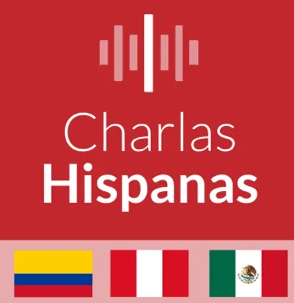
Apple Podcast | Spotify | website
A project created by the Hoy Hablamos team, Charlas Hispanas (Hispanic Talks) is the Latin American version of the previous podcast.
The series has the high-quality audio and teaching-through-storytelling method, but this time, the hosts come from Colombia, Mexico, Peru and Argentina.
Charlas Hispanas is a much younger podcast, with “only” 800+ episodes so far.
They also offer a premium subscription with transcriptions, exercises and grammar explanations.
Pro-tip: Charlas Hispanas also has grammar-related episodes scattered among the others (they’re tagged as “Grammar”).
15. No Hay Tos
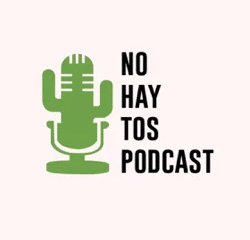
Apple Podcast | Spotify | website
No hay tos (lit. “there’s no cough”) is a common Mexican expression that means “Don’t worry about it” or “No problem.”
Roberto and Héctor, the hosts, have been friends since they were teens.
In their podcast, they tell stories about their past and present, where they are, and what’s going on in Mexico.
Both Spanish and English teachers, they created this podcast to help learners of Spanish learn and improve their Mexican accent, slang words included!
It’s amazing (and I’m saying this as a fellow language teacher) how seamlessly they go from story to grammar explanation to story back again.
Pro-tip: You can become a patron to get podcast transcripts, among many other goodies.
16. Español con Juan (1001 Reasons to Learn Spanish)
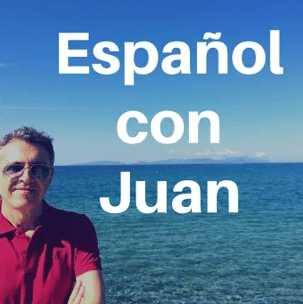
Apple Podcast | Spotify | website
Español con Juan (Spanish with Juan) is “a podcast in Spanish to learn Spanish.”
Juan is a super fun man who engages in his storytelling so deeply that he even imitates the voices of other people!
If you want to perfect your Castilian accent with awesome stories, cultural and historical explanations and comments on everyday topics, you need to start listening to Español con Juan.
A language teacher, Juan has an obvious passion for teaching and telling stories.
His explanations are hilarious! I like this podcast so much that even I, a native Spanish speaker, listen to him regularly.
Pro-tip: You’ll find the free transcripts of all the episodes on his website. Just click on an episode and then on “Haz click aquí para leer la TRANSCRIPCIÓN” (Click here to read the transcription).
Spanish Podcasts for Advanced Learners
17. Tres Cuentos
Tres Cuentos (Three Stories/Tales) is a literary podcast “dedicated to Latin America’s narratives.”
Perfect for any kind of Spanish learner (the podcast is completely bilingual), each episode revolves around a piece of Latin American literature. Many episodes include poems and fragments of the text that’s being talked about, followed by a commentary.
Carolina, the narrator and host, invites other narrators to read the stories, with a biography of the author often included. Guests related to the world of literature help her make the commentary and analysis after the reading part.
Each episode is published in both Spanish and English separately.
Pro-tip: Transcripts in Spanish and English are available for free. Just click on an episode and you’ll be able to listen and read at the same time.
18. El Oso Latino Habla Español
If there’s a complaint you’ll often read about El oso latino habla español (The Latino bear speaks Spanish) it’s “there aren’t enough episodes of this amazing podcast.”
And I agree.
This entertaining podcast is a great way for intermediate and advanced students to improve their Spanish language skills with interviews, music, grammar explanations, jokes, skits and cultural tidbits.
The hosts invite guests from different Spanish-speaking countries. These interviews include songs from the guest’s country and, very often, they talk about words that are different across accents (like birra, chela and cerveza — beer).
Pro-tip: Make sure you read every episode’s description, which includes links to everything and everyone included in the podcast, from the guest’s website to the songs that have been played. Some episodes even include a study guide.
19. Doorway to Mexico
Apple Podcast | Spotify | website
Aimed at intermediate and advanced students, this podcast series divided into two seasons will get you from book-Mexican to street-Mexican 20 minutes at a time.
In each episode, you’ll listen to a dialogue and then Paulina, the teacher, will have a bilingual conversation with her students.
During the conversation, she’ll explain key vocabulary concepts, expressions and slang, among other helpful things.
You’ll also learn about Mexican culture and traditions, and how day-to-day activities and life take place.
Her students will ask her questions, often in English, to which she’ll mainly answer in Spanish.
Pro-tip: You can get tons of bonus material, such as study guides, transcripts and additional audio, for a one-time payment.
20. News in Slow Spanish (Advanced)

Apple Podcasts | Spotify | website
The title really does say it all with this helpful and prolific podcast. They go over the news of the week with a slower than average speaking speed.
We all know that some Spanish-speaking people speak a little faster than the average English speaker, and this slight change really helps to make sure you understand every word.
And since you’re an advanced Spanish learner, this is the time to do this. Every. Last. Word.
Pro-tip: If you want to binge through several episodes, browse through their series for advanced learners, which covers themes like Latin American musicians, myths and legends and psychedelic visions.
21. Un Idioma Sin Fronteras

Apple Podcasts | Spotify | website
In this podcast from RTVE’s Radio Exterior, the hosts deal with Spanish being a language without borders—a language spoken all over the world.
They focus on current information about the Spanish language and Spanish literature as well as news, culture, awards and conferences.
The podcast also provides listeners with numerous tips on how to express themselves better in Castilian Spanish.
This podcast has been broadcasting daily for 14 years, so there’s a lot of material there for you to sink your teeth into.
Native Spanish Podcasts
If you’re an upper-intermediate or advanced learner, here are some high-quality Spanish podcasts meant for native speakers you can tune in to:
22. Fallo de Sistema
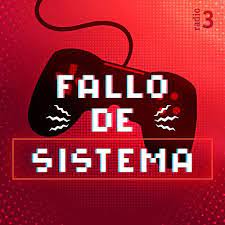
Apple Podcast | iVoox | website
For all the geeks out there, this podcast showcases all the very best comic books, video games, fantasy and science fiction novels and movies.
Mixed in with these are interviews with authors, scientists and even philosophers.
There’s always something different in each episode, from clips to movies, video games and interesting songs.
23. Las Raras

Apple Podcast | Spotify | website
This is another podcast for native speakers that is suitable for the upper-intermediate level and above. Just like Radio Ambulante, the stories focus on people from all over Latin America.
The episodes are audio documentaries with a focus on stories that are not often heard in traditional media. It’s produced by two Chileans as an independent podcast and has won many awards.
If you’d like to improve your vocabulary in more complex topics such as human rights, workers’ rights, education, migration and more, this is the podcast for you! Episodes are 20-30 minutes and also have transcripts.
24. Radio Ambulante
Radio Ambulante is a superb podcast with the mission of narrating Latin American stories that need to be heard.
With an emphasis on quality, Radio Ambulante gives a voice to people from all around Latin America, guests that tell the story of their life, art, struggles and dreams.
Divided into 12 seasons, the podcast offers over 200 episodes on topics as varied as getting celebrities’ autographs, looking for a multimillion inheritance, coming up with a solution for the energy crisis or finding inner peace in the least expected place, just to name a few.
Pro-tip: If you want a more learner-friendly experience, try their amazing app Jiveworld!
25. En Defensa Propia
En Defensa Propia (In Self-defense) is a podcast in which women are the ones to be heard.
Erika de la Vega, from Venezuela, presents a podcast in which she talks with her female guests about any kind of topic that has anything to do with being a woman. These include learning how to not be overprotective, changing to become a better woman, learning from your own mistakes and practicing self-forgiveness.
I’d describe this podcast as a psychological and cultural window to the heart and soul of women, especially Latin American women.
Pro-tip: You can watch the videos of the podcast episodes on Erika’s YouTube channel.
26. La Parroquia

This comedy talk radio program from Spain is hosted by Sergio Fernández and Arturo González-Campos.
Popular culture is a frequent focus. For example, a couple of episodes covered “True Detective” and the Harry Potter franchise.
The conversations are wandering and sometimes repetitive, but the latter can be a plus for Spanish learners.
Pro-tip: A new episode of La Parroquia is released every Friday on Onda Cero, and you can tune in to other podcasts there too.
27. El Gran Apagón
Apple Podcast | Spotify | Podium
Picture this: A huge solar storm destroys our satellites. Nothing electric or electronic works, including the internet, phones and TV.
Within days, riots start to take place. Water and food supplies diminish, people need to fight to survive. There’s chaos everywhere.
Some citizens suspect the authorities knew this was going to happen but did nothing. In fact, one man decides to prove it wih evidence.
El gran apagón (The great/big blackout) is an amazingly entertaining podcast catered to native Spanish speakers. The narration is superb, the production is top-notch, and the story itself is nail-biting, to say the least.
Pro-tip: You can download all the episodes for free and listen to them offline!
28. RFI Podcast Español Informativos

I listen to radio news in a variety of languages, and I have been somewhat underimpressed by the quality of offerings in the Spanish language for straight news.
The best Spanish audio news I have found is actually produced by the French RFI. Stories are global, carefully researched and quite diverse.
It may be a challenge for some learners to approach the variety of Spanish accents and the speed of speech, although the audio quality is great and the reporters speak quite clearly.
A number of different feeds are available based on the time that they are updated each day (on UT, a.k.a. Greenwich time).
Pro-tip: Go for a feed that updates an hour or two before you listen so that you’re catching the most recent news.
29. Cosas de Internet
Apple Podcast | Spotify | website
If you’re a techie, Cosas de internet (Internet things) is a podcast you can’t miss.
Completely in Spanish and geared towards native Spanish speakers with a love for technology and an unquenching curiosity, each episode of this podcast has Santiago and Laura (the hosts) talk about a topic related to the internet and technology.
From the radio and its creator to Wikipedia, this podcast is full of ones and zeros, QWERTY keyboards, Dungeons & Dragons and many other interesting topics.
The episode on Artificial Intelligence and how it helped to solve protein folding is exquisite.
Pro-tip: Check out the episodes on the website to get a list of links where you can read more about the different topics covered.
30. Nómadas

Apple Podcast | Spotify | website
This is a big favorite of mine as someone who loves to travel.
Each episode is essentially an audio documentary on a small corner of the world, complete with interviews, history and travel tips (especially for getting off the beaten path). There’s enough depth that it almost makes you feel like you have been there yourself afterwards.
You can, of course, run a search of old episodes and use them as a travel guide.
The show is hosted by Álvaro Soto and Esther García Tierno for Spanish radio, but you will hear a variety of accents in the interviews.
Pro-tip: To know more about Spanish-speaking countries, check out their episodes on Puerto Plata, Ceuta (a Spanish-speaking city in Africa!), Cuenca and more.
31. El Verdadero Robo del Siglo
Apple Podcast | Spotify | website
On January 13, 2006, Banco Río in Acassuso, Buenos Aires (Argentina) gets robbed.
The robbers are in the bank with 23 hostages, surrounded by 300 policemen. When special forces come inside, the robbers have already escaped, with over $19 million and 175 pounds of jewelry.
The heist would be called “the robbery of the century” by many (there’s even a movie about it!).
El verdadero robo del siglo (The real robbery of the century) tells the story of what really happened that day, narrated by the people who were actually there—policemen, hostages, investigators and robbers included.
Pro-tip: This YouTube playlist includes the whole podcast with subtitles in Spanish. Check it out!
32. La Biblioteca de Alejandría
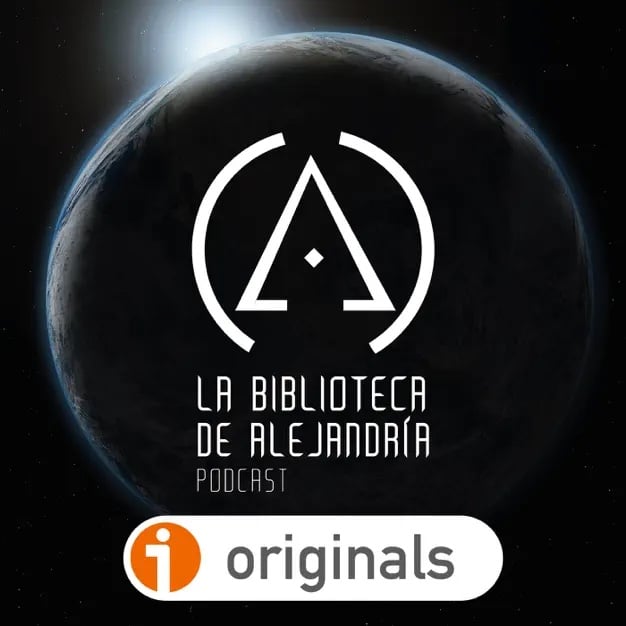
This thoroughly odd podcast features long lists of facts on history, science and oddities. It is definitely appropriate for trivia and science nuts and anyone on a mission to catalog all of the world’s information.
I get the feeling that some people may listen to this in their sleep, in the hope of absorbing raw facts.
The feed of old episodes is available but new ones may not be produced, or they may just end up being produced irregularly.
Pro-tip: You can listen to some of their episodes for free, but to access all of the episodes, you’ll need a subscription.
33. Obsesión por el Cielo
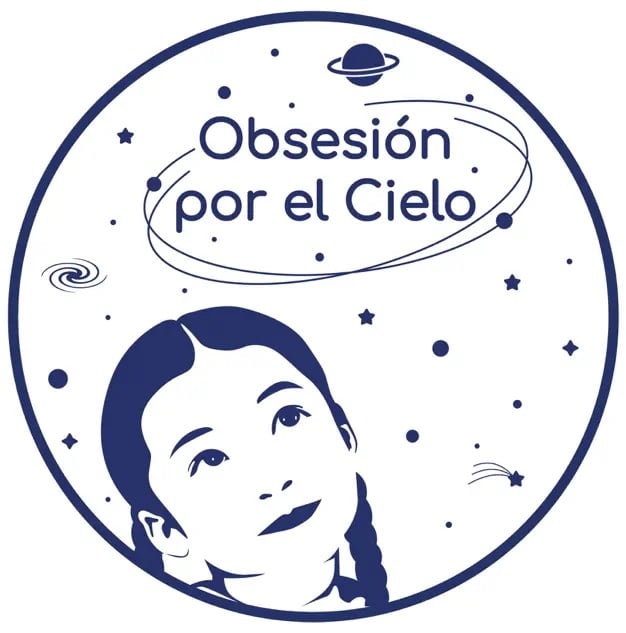
With over 1,000 episodes, this massive weekly podcast is one of the best ways to learn about astronomy and space in Spanish.
Each week, the hosts talks about two or three pieces of news related to astronomy.
Outer space is full of mysteries, and the more we explore it, the more we get to know about it. Obsesión por el cielo (Obsession for the sky) tries to bring those mysteries closer to us and explain them in a way that every listener is able to understand.
Pro-tip: Each episode includes a list of links for those interested in learning more about the different topics covered that week.
34. Universo Parallelo
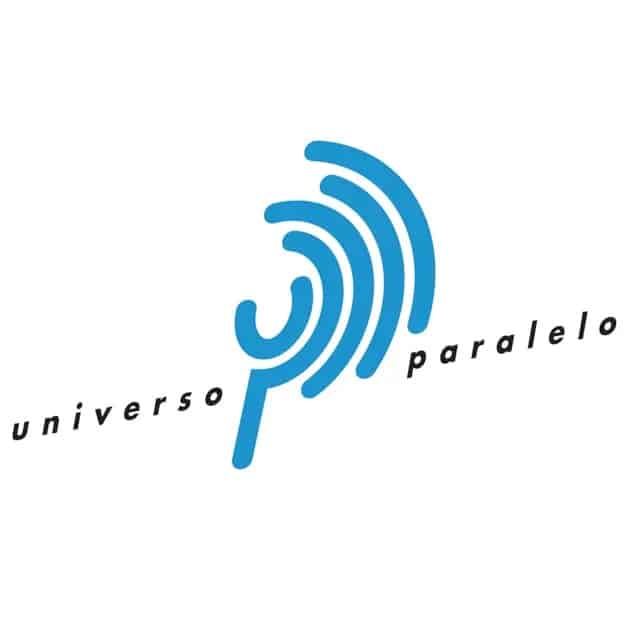
Apple Podcast | Spotify | website
Think of this as the Spanish answer to “Science Friday.” The interviews are a bit more random and less carefully prepared, but relaxed and easy to follow.
The podcast covers all sorts of sciences, like astronomy, psychology and physics. It also takes on science issues in the headlines, such as fracking, the math behind electoral systems and lots more.
There is a bit of odd background music under the interviews, which you either like or you don’t.
Pro-tip: They’ve also been featured in several events and other podcasts, so check those out if you’re looking for more material.
35. Cienciaes

This is a website and also an interview show about science hosted by Ángel Rodríguez Lozano. While it is certainly directed at a wide audience with more “popular” interests, it tends to go deeper into the weeds on topics to an extent that some might find a bit dull—and others might find fascinating.
That said, there is no music in the background for this one (always a plus in my book) and very knowledgeable guests are interviewed in a conversational style that is easy to follow.
Pro-tip: The podcast got really popular, so they’ve expanded to a YouTube channel.
36. El Explicador

Apple Podcast | Spotify | YouTube
On this Mexican podcast, Enrique Gánem offers meditations on particular subjects of scientific and historical interest.
While it is certainly a place for your nerdy science fix, the show also gets into the people and stories behind humanity’s advances, portraying science as a very human endeavor.
The author says he is accessible by email and urges people to write in with their suggestions for themes for shows, which are always chosen by listeners. Highly recommended.
Pro-tip: To find episodes more easily, their YouTube channel has playlists with the episodes already sorted by topic.
37. Carne Cruda

elDiario.es | Apple Podcast | Spotify
Like America’s Fresh Air, this program from Spain covers all sorts of aspects of current culture and politics.
Javier Gallego delivers both opinion pieces and long-form interviews about sexual politics, justice, the European Union and many other themes.
Some of the episodes on Spanish government themes may be hard to follow if you’re not familiar with the country’s politics. Such listeners should still give other episodes a try, though, as there are many different subjects that are often approachable for non-Spaniards.
Pro-tip: For a more multimedia experience, Carne Cruda also produces video documentaries.
38. Alt.Latino
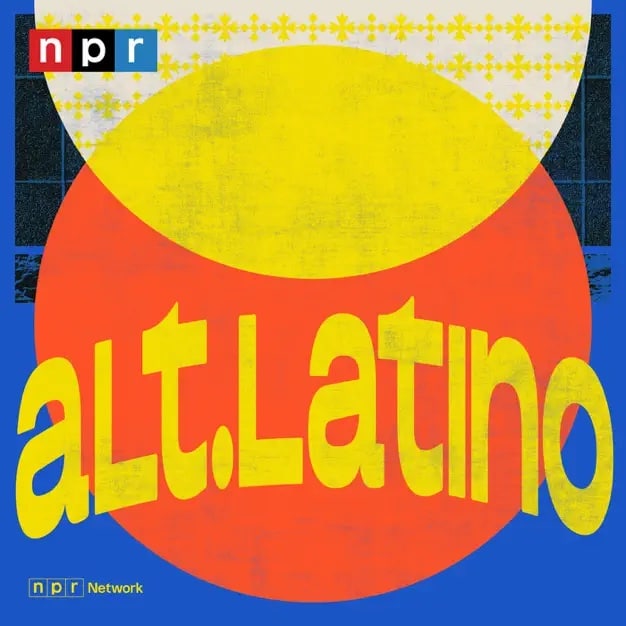
This music podcast from America’s NPR is in English, but it’s worth mentioning here for the great variety and high quality of its music, which is mostly in Spanish.
If you are a language learner who gets motivated by tracking down song lyrics, this show will give you some excellent leads to get you excited.
It covers the eclectic soup of hundreds of genres of music from Latin America, although with a marked aesthetic that somehow unites them. It is also a good window sometimes into perspectives of Latino cultures in the USA.
Pro-tip: Check out their Spotify playlist for an easy way to discover more music in Spanish.
39. Café del Sur

Apple Podcast | RTVE Play | Spotify
This is the podcast for tango fans, offering up history, interviews, poetry and of course a lot of music. It is produced by Spain’s RTVE, but you are obviously going to hear a lot of Argentinian speech.
It is hosted by the matter-of-fact but friendly Dimitri Papanikas.
Pro-tip: For some episodes focused on Spanish-speaking culture, check out Aún creo en la belleza and Santa Evita.
40. Democracy Now! En Español

This is a shortened, Spanish version of the lefty news program “Democracy Now!”
Even (or especially) if your politics run a little more to the right, you may want to give this a shot, as it often covers underreported human rights issues from around the world.
The translated audio includes snippets of a half-sentence or so in English before each new speaker starts. This can be a good way to situate yourself in the story.
Also, since it has an American perspective, it can be easier for Americans (or those familiar with the country’s politics) to follow.
Pro-tip: Try subscribing to their email newsletter to receive daily updates on the latest news!
How to Learn Spanish by Listening to Podcasts
Ready to milk your podcasts for all they’re worth? Here are our favorite tips for learning Spanish with podcasts:
-
Listen to both podcasts for Spanish learners and podcasts for native speakers. The one for teaching Spanish will give you practical information for improving your language skills, while the one created for native speakers will provide that immersive component you need to really reach fluency.
-
Pretend you’re in class, and try to take as many notes as possible! Write down words you don’t understand and look them up, check the grammar, etc. After listening to the whole podcast, you can then look at the transcript.
-
Practice Spanish shadowing. Shadowing consists of listening to native audio and repeating it while trying to be as faithful to the original pronunciation as possible. You can even record yourself to check if you need more practice.
- Try storytelling. Just listen to a podcast episode and tell someone what you’ve learned from it (in Spanish, of course!). If you don’t have anyone to tell, write it down or talk to yourself.
-
Play Spanish verb guessing. Pick a difficult podcast and write down five verb forms you hear, then jot down the full conjugational information for each verb afterwards. For example: cantábamos — first person plural of the imperfect tense of the verb (to sing).
It’s important to supplement with other resources too. While podcasts are great for your listening and speaking skills, novels and textbooks improve your reading skills. You’ll get an even more holistic learning experience if you take online Spanish courses or use Spanish learning apps that cover multiple aspects of the language.
You might already be using language learning tools that are similar to podcasts. Pimsleur uses half-hour audio lessons, Duolingo Stories have listening mode features to help you understand what’s said when you don’t have the words right in front of you.
Why Listen to Spanish Podcasts?
Spanish podcasts are perfect if you want to learn Spanish but don’t have a Spanish-speaking person you can chat with 24/7.
Using textbooks and flashcards is a good start. But you still need to get your head out of your textbook and start hearing real Spanish.
One of the most effective ways of doing this is with the help of Spanish podcasts since they can really help you hone your listening and speaking skills.
What’s more, they put the fun back into your learning sessions!
Whether you’re sitting in front of a desk, commuting, walking your dog, jogging around the neighborhood or standing in the shower, podcasts can always be there with you (assuming your electronic device is waterproof, of course!).
Can I Learn Spanish Through Podcasts?
Yes!
Here are six reasons why.
- You can learn at your own speed. Literally! Most of the time, you’ll be able to choose the speed of the audio.
- You’re hearing native speakers use real Spanish. Podcasts give you a sense of immersion hard to find anywhere else. You’ll be fluent in no time.
- You’ll broaden your vocabulary. You’ll obviously hear words you don’t know yet. Use them to create flashcards, vocab lists or sample sentences.
- You’ll learn how words are used. One of the best things about podcasts is that they allow you to listen to Spanish as it’s spoken by native speakers. You’ll learn words in their context, so you’ll know how to use them correctly.
- You can learn about lots of new topics. You choose what you want to listen to. If you get bored during one episode, just click on the next one.
- You can choose to listen to as much or as little as you want, depending on your schedule. Five minutes while having a shower, 15 minutes during your lunch break, 45 minutes on your commute… You decide!
Listening to Spanish will always help you one way or another, but choosing the right podcast is crucial.
Try out any of the 37 engaging podcasts above while incorporating the learning tips above, and you’ll be well on your way to fluency.
So what are you waiting for?
Choose your new favorite podcast and start listening!
Download: This blog post is available as a convenient and portable PDF that you can take anywhere. Click here to get a copy. (Download)
And One More Thing…
If you've made it this far that means you probably enjoy learning Spanish with engaging material and will then love FluentU.
Other sites use scripted content. FluentU uses a natural approach that helps you ease into the Spanish language and culture over time. You’ll learn Spanish as it’s actually spoken by real people.
FluentU has a wide variety of videos, as you can see here:

FluentU brings native videos within reach with interactive transcripts. You can tap on any word to look it up instantly. Every definition has examples that have been written to help you understand how the word is used. If you see an interesting word you don’t know, you can add it to a vocab list.

Review a complete interactive transcript under the Dialogue tab, and find words and phrases listed under Vocab.

Learn all the vocabulary in any video with FluentU’s robust learning engine. Swipe left or right to see more examples of the word you’re on.

The best part is that FluentU keeps track of the vocabulary that you’re learning, and gives you extra practice with difficult words. It'll even remind you when it’s time to review what you’ve learned. Every learner has a truly personalized experience, even if they’re learning with the same video.
Start using the FluentU website on your computer or tablet or, better yet, download the FluentU app from the iTunes or Google Play store. Click here to take advantage of our current sale! (Expires at the end of this month.)
